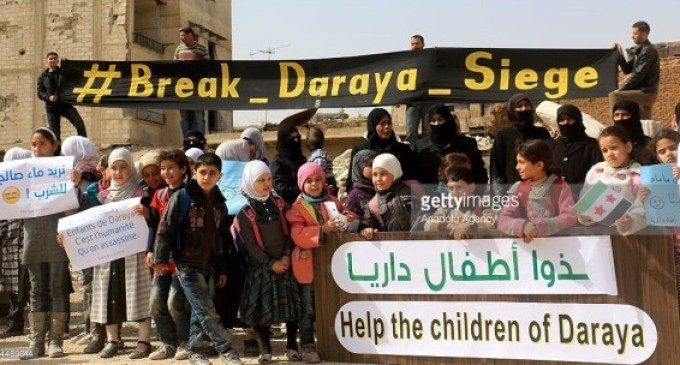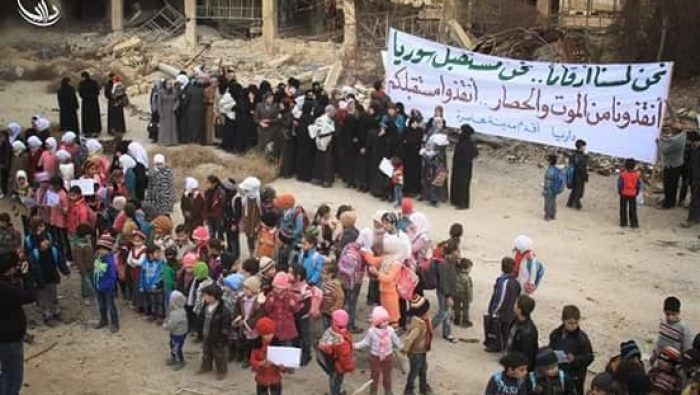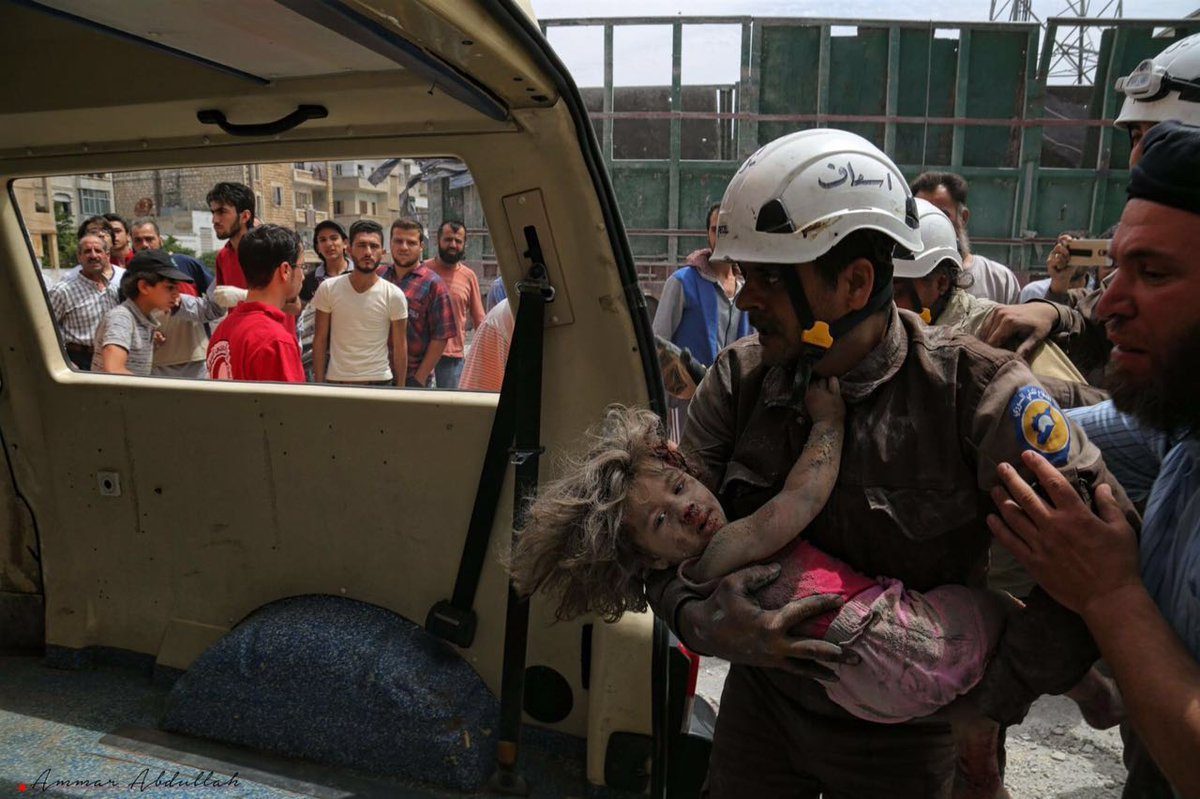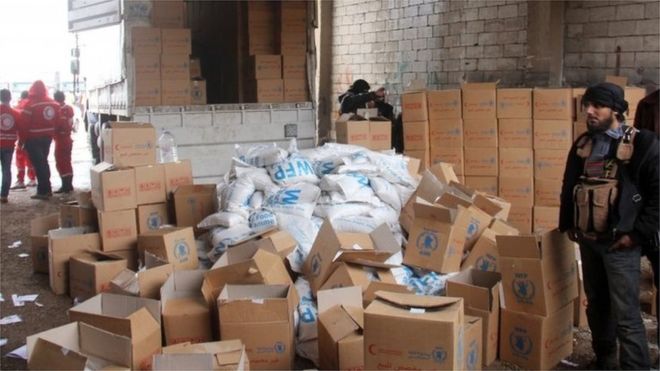
The United Nations is still waiting for Assad regime’s agreement for an aid convoy to enter the besieged town of Darayya, U.N. officials said on Tuesday.
“The blockage of aid is a political issue,” U.N. spokesman Ahmad Fawzi told a regular U.N. briefing in Geneva. “Darayya is 12 km (7.5 miles) from Damascus, so it can be done but we need the political go-ahead from the government.”
Last week Syria’s government, under pressure from its ally Russia and other countries belonging to the International Syria Support Group overseeing the peace process, allowed the first U.N. aid convoy into Darayya since late 2012.
It brought baby milk and medical supplies to support an estimated 4,000 civilians, just in time for Syria to meet a Thursday deadline to improve aid access or face having aid deliveries imposed by air drops.
But the convoy took no food to Darayya, where the U.N. has said malnourished children will die without outside help. U.N. officials had hoped food would arrive in a second convoy on Friday, but that was delayed with no government approval.
Jens Laerke, spokesman for the U.N. Office for the Coordination of Humanitarian Affairs, said the government had later given partial approval for the food convoy.
“That is not good enough,” he said. “We are reverting to the government.”
Syria’s opposition says the government approved the first convoy in a cynical ploy to alleviate international pressure.

UN asks Assad regime to allow air drops of aid
The United Nations on Sunday asked the Assad regime to allow airdrops of humanitarian aid — an operation that military experts say is complex, risky and not always that effective.
“One can imagine that the Assad army would get orders from Assad to prevent the drops, but this would be very bad for him on a political level,” said Jean-Claude Allard, an expert in military aeronautics at Paris’s Institute of International and Strategic Relations.
He said this would look bad for Assad because he was trying to position himself as a key player in the fight against ISIS, forgetting that Assad is the real cause of siege and humanitarian crisis in Syria.
He added that airdrops are very complicated in urban areas.
“We typically aim for inhabited areas, far from major highways. In an urban zone we need to find open spaces. An airport for example can do the trick,” said the military specialist.
Allard said the alternative was using a helicopter which can land on the equivalent of half a football field or make a drop from a few dozen metres.



